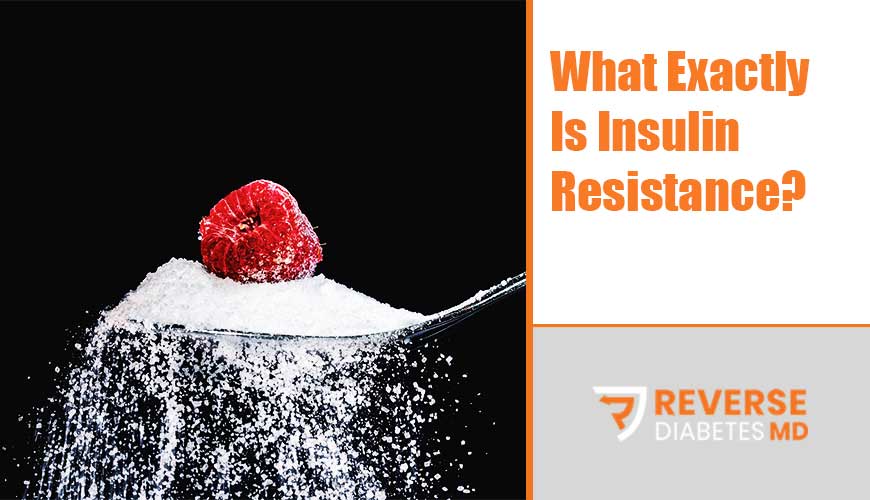Insulin is a vital hormone that controls the levels of sugar in our bodies. In a nutshell, it removes excess glucose from the blood through a process known as glycogenesis.
However, problems with insulin are at the heart of many medical conditions. Insulin resistance occurs when your cells stop responding to insulin. This means that the effects of insulin cannot be appreciated leading to a buildup of sugar in the bloodstream. About 100 million Americans are affected by insulin resistance. Fortunately, dietary and lifestyle changes can dramatically improve this condition.
This article explains all you need to know about insulin and insulin resistance.
What Is Insulin?
Insulin is a hormone that is produced by beta cells in the pancreas. Its main function is to regulate the amount of glucose circulating in your bloodstream. However, it also affects fat and protein metabolism. When you eat a slice of bread, which definitely contains carbohydrates, the amount of sugar in your blood increases. Consequently, the beta cells in your pancreas are stimulated to produce insulin. The insulin is released to your bloodstream, where it removes the sugar and stores it in cells. This process results in reduced blood sugar levels.
However, cells sometimes become less sensitive to insulin. When this happens, sugar begins to build up in the bloodstream. Your pancreas produces even more insulin to lower the blood sugar levels. This leads to high insulin levels in your blood, which is referred to as hyperinsulinemia.
Diabetes type 2 occurs when your cells become increasingly resistant to insulin, resulting in a rise in both insulin and blood sugar levels. If this persists for long, your beta cells may become damaged, leading to decreased insulin production.
Insulin resistance is the main cause of type 2 diabetes.
What About Insulin Sensitivity?
Insulin sensitivity is just the opposite of insulin resistance. When you have insulin resistance, it also means that you have low insulin sensitivity. While insulin resistance is harmful to your health, insulin sensitivity is beneficial.
What Causes Insulin Resistance?
Insulin resistance is caused by many factors.
A number of studies have shown that high amounts of free fatty acids in your blood can cause insulin resistance. This is caused by eating too many calories. Being overweight or obese is also linked to insulin resistance. Visceral fat that mostly accumulates around your waist can release free fatty acids into your blood and trigger inflammation. However, even people with moderate weight can develop insulin resistance, possibly due to genetic predisposition.
Other possible causes of insulin resistance include:
- High sugar diet. Artificial sugars have been linked to inflammation and insulin resistance.
- Inactivity. Regular physical activity can reduce insulin resistance by stimulating weight loss.
- Gut microbiota. A disruption in the bacterial environment of your digestive system can cause inflammation and insulin resistance.
- Genetic factors: African American, Hispanic, and Asian peoples are at higher risk for insulin resistance.
What Are The Complications Of Insulin Resistance?
Insulin resistance is the precursor for diabetes type 2 and metabolic syndrome. Metabolic syndrome is a group of risk factors associated with type 2 diabetes and heart disease.
By the time a person is diagnosed with type 2 diabetes, they are likely to have developed chronic insulin resistance. It is estimated that by the time a diagnosis is made, 50% of insulin-producing cells may have lost function. This means that the person is not only resistant to insulin, but they are also unable to produce adequate amounts of insulin.
Insulin resistance is also strongly associated with heart disease, which is the leading cause of death in the US.
Other diseases linked to insulin resistance include:
- Non-alcoholic fatty liver disease (NAFLD)
- Cancer
- Polycystic ovarian syndrome (PCOS)
- Alzheimer’s disease
How To Reduce Insulin Resistance
Weight loss is one of the most effective ways of reducing insulin resistance. Making drastic dietary changes is also necessary so that you are consuming more of the beneficial foods and less of the harmful ones. Exercise also helps to shed off extra weight and maintain health. Lastly, doing away with harmful habits such as smoking and excessive drinking also plays a significant role.
- Engage in regular exercise such as brisk walking or jogging for 30 minutes each day.
- Lose belly fat
- Stop smoking
- Reduce intake of artificial sugar, such as from artificially sweetened beverages
- Increase intake of omega-3 fatty acids
For more on improving insulin sensitivity with dietary changes, read our previous article here.
The bottom line
Insulin resistance is responsible for a number of chronic health complications. Often it can go on undetected for a number of years without causing alarm. When insulin resistance is not detected early enough, it is likely to wreck a person’s health. Fortunately, a number of things can be done to prevent or stop the progression of insulin resistance. If insulin resistance can be prevented we will definitely have millions of people living healthier and more fulfilled lives that are free of disease.
References
1. NCBI (2005): Dose-response effect of elevated plasma free fatty acid on insulin signaling. Retrieved from https://www.ncbi.nlm.nih.gov/pubmed/15919784
2. CDC (2017): New CDC report: More than 100 million Americans have diabetes or prediabetes. Retrieved from https://www.cdc.gov/media/releases/2017/p0718-diabetes-report.html
3. NCBI (2005): Dose-response effect of elevated plasma free fatty acid on insulin signaling. Retrieved from https://www.ncbi.nlm.nih.gov/pubmed/15919784
4. NCBI (2013): The Role of Gut Microbiota on Insulin Resistance. Retrieved from https://www.ncbi.nlm.nih.gov/pmc/articles/PMC3705322/






